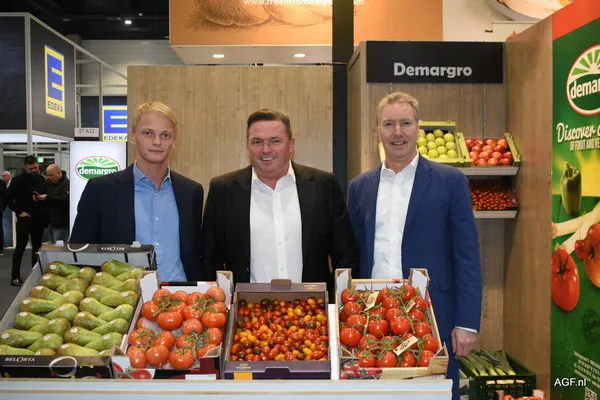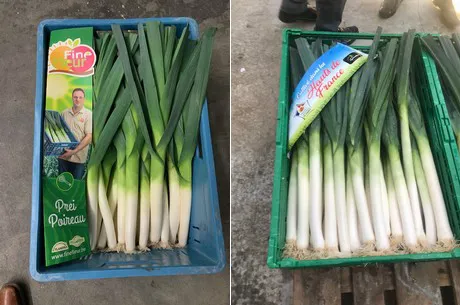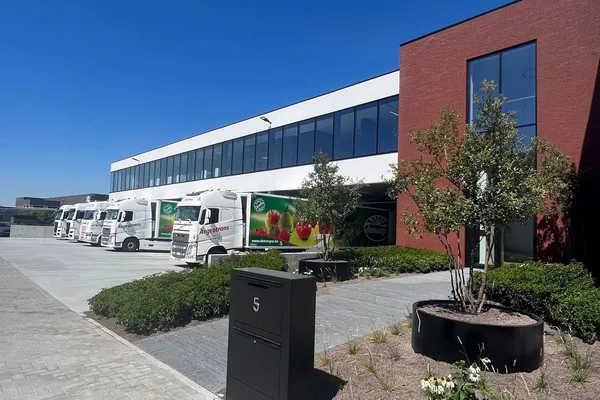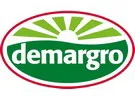For many of the vegetable prices, the peak seems to be finally behind us. Products like leeks have been dropping visibly in recent days, according to Guy De Meyer of Demargro. "This week the price level has dropped some 50 eurocents to a price level of around €1.20 per kilo. That is already a lot better price than the €1.40/1.50 it was previously. It's not yet cheap as such, but that's not on the cards for this season, I expect."

"As long as sales continue, these high prices are obviously good for producers and traders," Guy continued. Therefore, despite the prices, sales at the exporter's location are certainly not a problem. "As a company, we have sold up to 15 per cent more leeks compared to the same period last year. That is almost scary, but shows that price does not always affect sales. If leeks are needed, they sell. That is also the reason why sometimes it is better to sell the vegetables expensively so that everyone can make a nice living out of it, but maybe at times it has been a little too expensive to keep trading well."
Demand for Belgian leeks actually comes from all over Europe. "So quality is very good, which has been an advantage. The leeks have not grown as fast due to the weaker weather. This therefore resulted in good average weights with few outliers. This ensures consistent quality and calibre, so there was little difference in prices of the different sizes and therefore sorting was also better." Add to that the fact that there was actually a shortage of leeks throughout Europe and one quickly arrives at the Belgian supply. "From Spain, Italy, Portugal, Germany to Scandinavia. There hasn't been an oversupply anywhere, creating a demand market where everyone has an active presence."

However, the trader does see a shift in the way leeks are purchased by its customers. Guy: "People used to buy a lot per kilo or even 3-kilo bags, but nowadays it's more and more in smaller quantities. In some countries, they are now even sold individually because of the high prices. Surely this is a trend we are seeing more and more, which is why certain retail chains are now also asking for the individual prices because this has also become more interesting for them."
However, at the end of the day, this does not mean fewer sales at Demargro. "In the end, consumers might buy just as much, but choose 3 separate pieces instead of a big bag. It's also kind of good for us because the calibres 3-4, which are mainly sold individually, go along with the prices of the calibres 2-3, which are actually too fine to sell by the piece. Average prices benefit from that."

Tomatoes are coming in at a good trading price
Looking at the other winter vegetables, Guy sees the high prices continuing for a while. "Head lettuce, white and red cabbages, celeriac, onions and carrots. There was actually a shortage of them everywhere this year, so they have been expensive all season." With greenhouse vegetables, on the other hand, as with leeks, prices are slowly starting to fall. "There, the Belgian supply is also quietly starting to enter the market. Moreover, in Spain the price is also dropping a bit more. Then we will also automatically adapt a bit to Spanish prices here."
"This week we had vine tomatoes on the clock for €2.35 per kilo and that's a price you can trade with. The volume is not there yet to start selling full trucks, but from the moment there is some product on the clock, you see people's enthusiasm that there are Belgian and Dutch tomatoes again. So you want to be able to offer those. In the coming weeks, that will expand more and more. The last few weeks we've had some bad luck with the dark weather and rain, but as soon as the sun comes through a lot, I can see the big productions coming to market together."
Guy is not afraid of any oversupply occurring. "There may be some oversupply, but that will be surmountable, I expect. The market will do its job then, so I hope prices will remain at relatively nice levels."

Larger volumes of Belgian strawberries on the way
In addition, the focus is now increasingly on Belgian and Dutch strawberries. "We can supply strawberries almost all year round, but it's nice that local supply is also increasingly coming back to the market. With the high-quality strawberries, we are at a price level of €3.50 per 500 grams. Those are basically nice prices. It is on the expensive side, but of course the costs are also a bit higher. However, with the nicer weather approaching, here too the large volumes will come back on the market more soon."
"From the first week of April, we will be able to sell plenty of Belgian strawberries again. Then we hope we will be able to compete with the Spanish strawberries, because they are still of good quality as well after all," Guy concludes. "But on a price level, I do expect us to be able to compete with them. There is still a lot coming from Spain, but once more local comes to the auction, this will also decrease a bit."
For more information:
Guy De Meyer 
Demargro
Tombrugstraat 11
8850 Ardooie, Belgium
+32 (0)51 74 70 75
[email protected]
www.demargro.be










